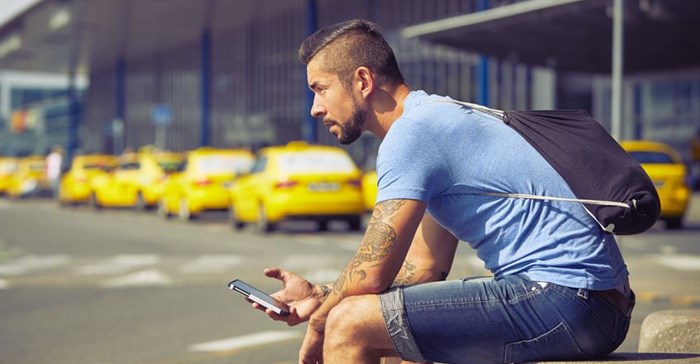Uber is starting to play a significant role in global tourism with their technology in place in more than 475 cities across 75 countries. In just two and a half years, Uber established a strong presence in South Africa's five major cities, creating over 4,000 economic opportunities and moving more than 5000,000 people to their destinations in an affordable and convenient way.

©JaromÃr Chalabala via
123RFAccording to Yolisa Mashilwane, Head of Public Policy for Uber South Africa, who spoke at the Tourism Policy Symposium in Johannesburg, a significant portion of these Uber riders have been national and international visitors to these five cities, and Uber is enjoying steadily growing popularity as a preferred way for tourists to move around our cities.
“While we do not measure the percentage of rides requested by tourists across all regions in the country,” Mashilwane explains, “our recent research into tourist usage of our services found that, in 2015, international riders made up almost 29% of total bookings in South Africa.”
Familiarity
Mashilwane points out that the popularity of Uber is a natural consequence of the familiarity that many visitors have with the Uber app. “For global tourists to South Africa - particularly those on a first visit - the experience of arriving in the country can be somewhat intimidating,” she explains, “so the familiarity of Uber, combined with the convenience of being able to input your destination without any language barrier challenges, makes for a very appealing proposition.”
Standardised payment option
She also points to the standardised payment option as a further compelling reason why Uber is fast becoming the first choice option for many visitors to the country. “One of the biggest challenges facing a tourist in a strange country is getting to grips with the currency difference,” she explains, “and here, too, Uber provides a sense of security thanks to its standard electronic payment option that affords international users the peace of mind that they are paying a fair and fully transparent price for a comfortable and hassle-free ride.”
Safety
Safety is another key factor driving the increase in numbers of tourists requesting Uber to get them to their destinations. While driver error and road accidents can never be entirely eradicated, the technology on which the Uber offering is built makes it one of the more secure solutions for riders and drivers alike. “Uber gets people into quality approved vehicles, driven by screened and qualified drivers, quickly and efficiently,” Mashilwane explains, “it also removes the need to carry cash (unless preferred) and there is no standing in the street to hail a cab or struggling to find the nearest bus stop late at night.”
She also points to the trackable, GPS-based technology of Uber as a further safety measure that gives comfort to tourists who may otherwise have been nervous about getting lost in a strange city. “Riders can not only share their full details and estimated arrival times with others,” she points out, “but they also receive detailed information about their driver, vehicle, and route before they ever have to step inside the vehicle.”
Strong relationships and partnerships with tourism boards
Mashilwane explains that, while Uber isn’t specifically building a tourism component into its operating model, it is being proactive in terms of growing its involvement in this immensely valuable market, particularly through partnerships with established tourist boards and organisations. “Uber has strong relationships and partnerships with tourism boards across the country.” she says, “so we are always looking for new ways to market to local and international travellers to deliver safe, affordable and reliable rides that enhance their experience of our beautiful country.”















































